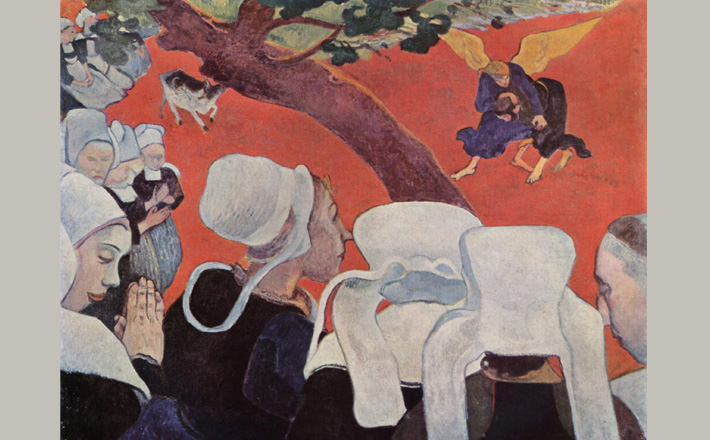Commentary on Jeremiah 31:27-34
The prophet’s job is twofold. In Jeremiah 31:27 God reminds Jeremiah of his commission by summarizing and reiterating the task in Jeremiah 1:10.
See, today I appoint you over nations and over kingdoms,
to pluck up and to pull down,
to destroy and to overthrow,
to build and to plant.
Although only two of the four verbs focus on the positive, it is clear that building and planting, is as much the job of the prophet as are prophetic warnings. While much of the book of Jeremiah is focused on plucking up, pulling down, destroying, and overthrowing, the focus in Jeremiah 31:27-34 is on building and planting. In other words, this text focuses on bringing hope to the beleaguered community.
Jeremiah writes of a new day when “people will no longer say, ‘The parents have eaten sour grapes, and the children’s teeth are set on edge.’” Continuing to make it plain God explains, “Instead, everyone will die for their own sin; whoever eats sour grapes — their own teeth will be set on edge.” In other words, individual responsibility will replace communal responsibility for sins.
Unlike the previous Mosaic covenant, which was external and written in stone, this new covenant will be internal, written on hearts and minds.1 Writing on hearts and minds signifies a closeness that God describes as “I will be their God, and they will be my people.” What an awesome reminder that God desires a close relationship with humanity.
No longer held together by external words and commands, this is to be relationship in which “No longer will they teach their neighbor, or say to one another, ‘Know the Lord,’ because they will all know me, from the least of them to the greatest.” In other words, this is to be a relationship guided by an internal voice. God will relate to each person as an individual, not just to the community as a whole.
This passage is an excerpt from what has come to be known as Jeremiah’s Book of Consolation in chapters 30-33. After what seems like an endless barrage of warning and reproach, Jeremiah now turns his pen to words of encouragement for the exiled community. His letter in chapter 29 advised the community not only to settle down and make a life, but to pray for their oppressors as well. If they had adjusted to their new, but unfortunate circumstances, there would be no need for such advice.
Hundreds of miles away from home, the community needed to know that God had not forgotten them. Desperate for hope, the community clung to the false hope Hananiah uttered about a two year stay in Babylon. Contrary to words spoken by Hananiah, Jeremiah’s words seemed harsh. Yet, his words were a wake-up call, a rude awakening.
The hope Jeremiah envisioned included not only a physical restoration but a spiritual one as well. This restoration would have been beyond the community’s imagining. This would be a healing of the relationship between God and the entire nation. From the least to the greatest, each would know God for him or herself. No longer would one’s standing before God be tied to and determined solely by communal experiences. A new day was dawning when one’s standing before God would be first and foremost a personal matter. This one-on-one relationship, initiated by God, would be affirmed by the birth, life, death, resurrection, and ascension of Jesus Christ. For now, the Jeremiah’s hope and God’s promise make what was inaccessible accessible.
In verses 29 and 30 Jeremiah ushers in this new era, a new relationship between God and Israel. The new relationship is defined by a shift from communal to individual responsibility. With God’s word indelibly written on heart and mind, there is no need to pass consequences on to another generation.
God welcomes this closeness for with it comes God’s declaration, “I will be their God, and they will be my people.” One can almost hear God celebrating and rejoicing in the new relationship. “For I will forgive their wickedness and will remember their sins no more.” It is as though God is as glad, if not even more glad, healing the breech in God’s relationship with Israel and with humanity.
Writing God’s words on human hearts and minds creates a closeness between God and humanity that is indefinable. With this closeness, God’s words become an integral part of one’s identity. With this kind of closeness, one can no longer escape responsibility by saying, “I didn’t know.” One may fall short, however, lack of knowledge is not the culprit. Instead, the culprit is willful choosing.
Maya Angelou is noted for saying: “When you know better, you do better.” While that may be true, it is also true that sometimes we know better, yet fail to do better. The lesser choice may be just too attractive to resist. Either way, for better or for worse, the consequences are to be borne by the one who makes the choice.
While only two of the six verbs in Jeremiah’s commissioning are positive, these two verbs are enough. Like Jesus’ turning water into wine being hailed as saving the best for last, in this passage, Jeremiah too saves the best for last. With his pen he declares God’s promise and intention, “For I will forgive their wickedness and will remember their sins no more.”
Biblical writers are known for their economy of words. Two verbs are enough to represent this new day in the relationship between God and humanity, between Israel and God. Praise God for this new day!
Notes:
1 Issiaka Coulibaly, “Jeremiah” in Africa Bible Commentary: A One-Volume Commentary Written by 70 African Scholars (Grand Rapids, Zondervan, 2006), 895.


October 16, 2016